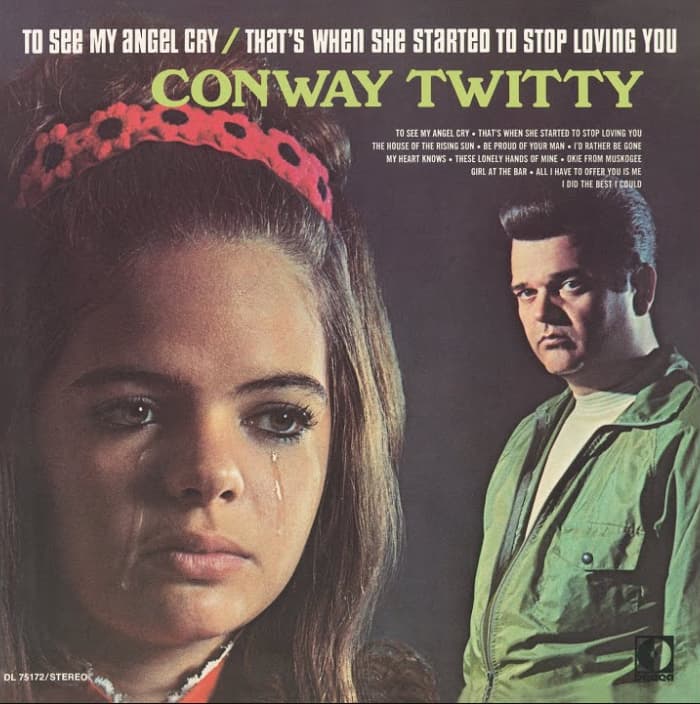
The Unspoken Torment of a Fool’s Regret
There are certain songs that don’t just tell a story, they wrap themselves around your heart like an old, familiar pain. Conway Twitty’s 1969 masterpiece, “To See My Angel Cry,” is one of those songs. It’s a haunting ballad, a whisper of regret that resonates with anyone who has ever let go of something precious only to watch it break in someone else’s hands. The song was a monumental success for Twitty, serving as the title track for his album of the same name and becoming his third career number one hit on the country charts. It spent one week at the top spot and thirteen weeks on the country chart in total, cementing its place in the pantheon of classic country hits.
The genius of “To See My Angel Cry” lies in its wrenching narrative. The story is a simple one, yet it carries the weight of a thousand unspoken apologies. A man, who once had a deep and loving relationship, is now a distant observer. He watches as the woman he foolishly “tore down” and left is now with another man. The cruel twist of fate is that this “angel” is now begging her new partner not to leave her, a scene that mirrors the very pleas she once made to him. He stands there, helpless, witnessing the pain he caused now being inflicted by someone else, and it’s a pain that he knows all too well. It’s a poignant and almost unbearable moment of clarity.
The meaning of the song goes far beyond a simple tale of lost love. It’s a deep reflection on regret and the agonizing feeling of knowing you had something perfect and threw it all away. The lyrics, co-written by Twitty, L. E. White, and Carlton Haney, are a masterclass in emotional storytelling. The narrator isn’t just sad; he’s tormented by the sight of her tears, not because he still loves her in a possessive way, but because her hurt is a stark mirror of his own past folly. He sees her pain and is reminded of the pain he caused, a guilt that he must now carry. The line, “She don’t know how much it hurts me / To see an angel cry,” isn’t just about his current sorrow; it’s a profound admission that his past actions have come back to haunt him in the most painful way imaginable.
Twitty’s rich, smooth baritone delivers the lyrics with an emotional weight that few singers could ever hope to match. He doesn’t just sing the words; he embodies the heartache and the torment. Each note is a sigh of regret, a testament to a love that was lost and can never be reclaimed. It’s a song that evokes memories, perhaps of our own foolish mistakes, and reminds us of the delicate nature of love. Listening to it today, it’s a journey back to a time when songs were stories, told with a sincerity that could break your heart and heal it all at once.